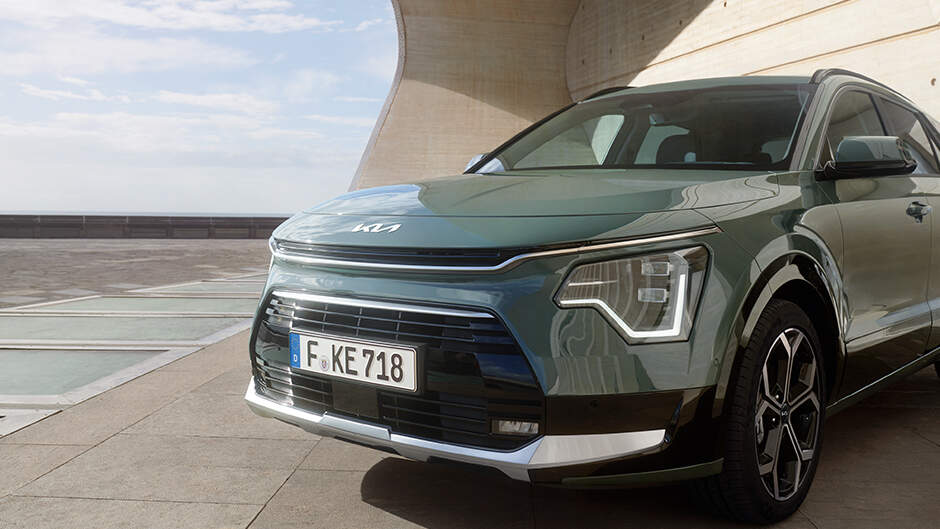What Tax Band is My Car?

What Tax Band is My Car?
Car tax is an inevitable cost for most drivers. Despite it being a major expense, it’s quite often forgotten about or not completely understood. Car tax rates are determined by different bands, but understanding which tax bracket your car belongs to can be confusing.
At Kia, we know that keeping on top of your vehicle running costs, tax included, is essential to proper budgeting. So, we’ve compiled a comprehensive guide to vehicle tax rates and understanding what tax band your car is in. We also outline what changes you can make to reduce your car tax rates.

What is car tax?
Car tax, also called road tax and officially known as Vehicle Excise Duty (VED), is an annual tax that nearly all drivers must pay to drive their car on a public road. Everything paid as car tax goes into a central government fund, the Exchequer, which is used to fund all public services or ventures, from education to health to policing.
Road tax is split into two payments: a first payment when you register a new car, which covers your vehicle for 12 months, and then flat rate payments every 6-12 months. Car tax rates for the first payment are determined solely by your vehicle’s CO2 emissions.
Once you move onto the second annual tax payment, the rate you pay varies depending on which car tax band your vehicle falls into. These road tax bands are dictated by how old your vehicle is, along with its CO2 emissions. If your car is valued over a certain amount, this can also increase your vehicle tax rates.

Understanding what tax class your vehicle is
Knowing what car tax bracket, or class, your car is in is essential to working out how much car tax you pay. For the first-year payment, you will pay between £0-£2,605, depending on your vehicle’s CO2 emissions. The more polluting your vehicle is, the higher your tax rate will be.
The second, ongoing payments follow a flat annual rate that varies depending on car age and CO2 emissions. For petrol or diesel vehicles registered after 1st April 2017, car tax is £180 per year. Alternative fuel vehicles (which include hybrids
, mild hybrids and plug-in hybrids
) are considered low-tax cars as they pay a discounted rate of £170 annually. If your car value is more than £40,000, you will also pay an annual surcharge, which is currently £390.
The easiest way to check which tax band your car is in, and exactly how much you pay, is by using the tax rate tables on the gov.uk
official website. It’s not uncommon for road tax rates to change year-on-year, so check the government guidance to keep updated on the newest car tax rates.
Electric cars
currently pay no road tax, as EV drivers are exempt from all payments, including the surcharge. The government introduced this EV road tax exemption to incentivise drivers to purchase cleaner, more sustainable cars.
However, this is due to change in 2025, when the car tax exemption for electric cars will end. After this date, pure EVs will have to pay the same annual tax rate as petrol or diesel cars, and any EVs worth over £40,000 will also be eligible for the surcharge.
With this upcoming change, there really is no better time to go electric. If you make the switch to an electric car
today, you can capitalise on all the financial benefits of emission-free driving and save up to £2,605 in your first year and £570 each year after that until 2025.
_940x529.jpg)
How to tax your vehicle
It’s illegal to drive on a public road without road tax, so it’s essential to tax your car when you first register it. To tax your vehicle, or renew your vehicle tax for a new car, you must have:
• A V5C logbook or a V5C/2 (if you’ve just bought the vehicle)
• A valid MOT (valid from the date your road tax starts or is issued)
• A valid exemption certificate (if you’re applying for a road tax exemption, such as a disabled person exemption)
It’s important to note that even if you pay no road tax, like EV drivers or people with other exemptions, you’re still required to tax your vehicle. You can find more information and tax your vehicle via the gov.uk
website.
Images shown are for illustration purposes only and may not be to full UK specification. Features shown are not standard across the Kia model range and availability will vary dependant on model. For further details please refer to the individual model specification sheets.

